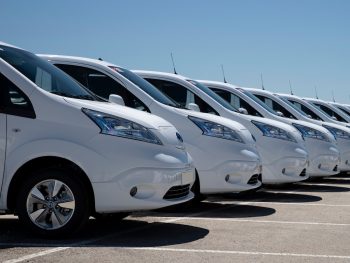Scottish Water has ordered 20 new Nissan e-NV200s electric vans, marking the beginning of a shift en masse to greener vehicles.

The organisation has pledged to become net zero by 2040 and a new consultancy report by Cenex has identified that up to 60% of its operational fleet could turn electric to reduce transport emissions.
The Nissan EVs will replace diesel-powered vans coming to the end of their work cycle and will be adapted for use in helping deliver services across the country, including by water quality samplers, technical teams and network operatives. They will be on the road by April 2022.
Charging stations have already been installed at key Scottish Water offices, treatment plants and depots. Scottish Water Horizons, the utility’s commercial subsidiary, are installing charge points during the build of new renewables sites as a cost-effective way of accelerating their deployment.
Elaine Pringle, Scottish Water’s fleet manager, said: “We are now starting our journey to putting zero-emissions vehicles on the road – and planning for more. We operate a varied fleet with specific usage profiles, payload and towing requirements and equipment.
“We will now carry out our own real-world testing – including having access to vital charging infrastructure at workplaces and at home – to ensure the electric vehicle technology will meet operational requirements with no impact on customer service.”
The comprehensive review by Cenex of more than 1,300 vehicles on the Scottish Water fleet identified where suitable electric vehicles could be introduced, the location and type of charging infrastructure required, and provided a strategic deployment plan to meet Scottish Water’s commitment to net zero emissions by 2040.
A new Scottish Water project team led by EV vehicle specialists is now in place to take forward the fleet transformation opportunities.
Other areas being explored include using alternative fuels for heavy vehicles including compressed natural gas (CNG) and ‘drop-in’ fuels such as Hydrotreated Vegetable Oil (HVO).
Robert Anderson, senior fleet specialist at Cenex, added: “With such a large and varied operation, Scottish Water was one of the most complex vehicle fleets for us to assess and plan for a zero-emission fleet transition. In-depth analysis has shown that even with such a varied fleet operation, there is still great potential to transition the van fleet to electric, with limited impact on business operations.”

